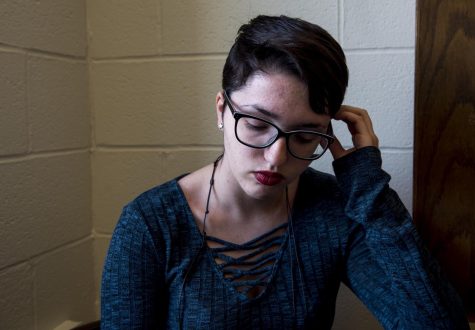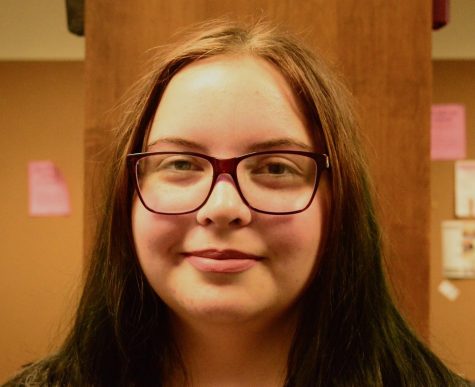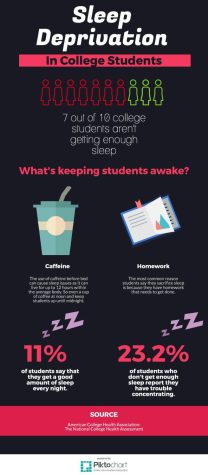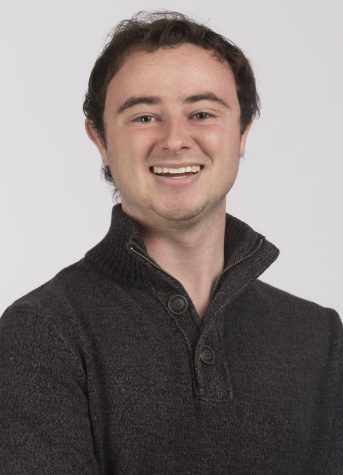Regional campuses expanding mental health care options
April 30, 2017
More than 40 percent of college students experience anxiety and more than 35 percent experience depression, according to the American Psychological Association.
With these numbers increasing each year, colleges and universities are putting an emphasis on mental health, including Kent State.
President Beverly Warren is focusing on this initiative through the Kent State of Wellness campaign, an overarching health effort including mental health, alcohol and drug use, nutrition and sexual health.
This effort is university-wide, and regional campuses are strengthening the support made available for students.
Kent State is also partners with The Jed Foundation, which assesses and enhances a university’s mental health, substance abuse and suicide prevention programming.
Last spring, campuses responded to a 128-question self-assessment about mental health promotion. The partnership began in March 2016, and campuses are beginning to put the Jed survey findings into action.
All of Kent State’s regional campuses have mental health initiatives in place and are exploring more ways to offer support for students.
Ashtabula
Lindsey Myers, manager of communications and marketing, received a Kent State of Wellness grant to fund a healthy living program.
Part of this program will include mental health. Myers said it is important to note that to live a healthy lifestyle, physical and mental health must be thought of as one cohesive unit.
The campus has Kognito training available, which helps students learn how to provide support to fellow students. Students can enroll online and browse through conversation stimulations to learn how to handle tough situations regarding mental health.
Ashtabula also has a CARE Team, which stands for Consultation Assessment Referral Education. Each regional campus has a CARE Team that is primarily made up of staff and faculty members.
Anyone on campus can refer someone online through the CARE Team Referral Form. Guidelines are posted online and students who are concerned for another friend or classmate can refer them and the CARE Team will reach out to provide support and resources.
“It’s modeled after the CARE Team at the Kent campus, but it’s really intended to be kind of catching students who may be exhibiting a change in behavior and more kind of preventative,” Stocker said. “The goal is catching students before a crisis.”
East Liverpool/Salem
Kathrine Vance-Righetti splits her time between the East Liverpool and Salem campuses. She works as a counselor at both campuses to provide free, confidential sessions to students at either campus.
Righetti recently received a grant for the campuses to educate students on the effects of binge drinking. She is in the works of getting national speakers to visit the regional campuses and talk with students.
Righetti also plans to implement “stall talks,” which is when informational brochures are placed in the bathroom stalls for students to read.
Many of the other campuses including Stark and Tuscarawas also have “stall talk” items available for the students to pick up when they go to the bathroom.
“Every four weeks there will be information on both campuses,” Righetti said. “The numbers prove that people read during stall time.”
Having a counselor on campus is important to Righetti because it provides an outlet close by for students who are experiencing panic attacks or stress. Many of the students drive between 15 and 30 minutes to get to the campus.
“To have a counselor on campus allows that student to know that they can go to someone right then and there,” Righetti said. “I think that what a counselor brings is an emotional piece that is so significant to learning.”
Geauga
By this fall, the Geauga campus plans to have a mental health counselor available to students on the campus grounds.
Dean Susan Stocker, who is the dean of both the Geauga and Ashtabula campuses, said Nathan Ritchey, vice president of Kent State system integration, instructed all campuses to make counselors available on grounds. Some campuses have hired counselors while others partnered with outside counseling services.
These individual counseling services will provide sessions for students related to stress reduction, coping skills and time management, to name a few.
“We really also view this addition (of a counselor) as a factor that will help to increase our retention,” Stocker said. “We believe students will feel more supported with more resources to draw up in so that hopefully they will be more likely to stay and complete their degrees.”
Denise Milhollan, Geauga’s communication and marketing manager, said she has been working at the campus for 18 years. Mental health has become a more important focus of the campus in recent years, she said.
“It may he always been there and we always have a plan I think more so come up as a priority on the president’s agenda,” Milhollan said. “A lot more attention given to our campus providing more resources for our students.”
Stark
The Stark campus employs a full-time counselor, as well as an assistant who is typically working on a master’s or doctorate in a related field.
Emily Ribnik, a professional clinical counselor and supervisor, works one-on-one with students and coordinates events with the BrainStorm, a student psychology and sociology group.
Stark recently hosted a Mental Health Resource Fair on April 18, where community resources visited the campus to educate students on local mental health resources.
“We invite those off campus providers onto campus during this event,” Ribnik said. “It’s just an opportunity for student just to learn more about those resources.”
Ribnik sees anxiety the most in students who visit her office. This does not mean, however, that they are all diagnosed with anxiety. Rather, they experience some form of anxiousness. The next most-seen mental health issues among students are depression.
Ribnik has seen an increase in the number of students who have visited the counseling services to discuss addiction.
Though many of the students are not struggling with it personally, they are affected by addiction through their relationships with friends, family members or significant others.
“They’re coming in because that’s hard on them and something they are struggling with even though they themselves are not engaging with addictive behaviors,” Ribnik said. “They are seeing someone they love do that, and that can be extremely stressful.”
Trumbull
The Trumbull campus already has a full-time counselor on campus.
Barbara Ozimek works on the campus to provide free counseling for students who may need help overcoming stress, balancing school, work and family or managing anxiety or depression.
Trumbull also has a partnership with ASAP, an opiate task force provided by the Trumbull Mental Health and Recovery board. The campus works with this Alliance for Substance Abuse Prevention to provide education programs to students.
Trumbull also hosts an annual Wellness Fair for their students. Local organizations and agencies will attend the event to provide volunteer opportunities and mental health resources for students.
Marketing coordinator William Burgess works to promote ASAP and their events through the Trumbull campus’ social media. Burgess retweets and shares news and information from ASAP to ensure “students and the community in general are getting good information.”
Tuscarawas
Counseling services are available at the Tuscarawas campus, though the service is not available full time on grounds.
Laurie Donley, the director of enrollment management and student services, said the campus partners with local counseling services who accept referrals from the campus. Representatives from the counseling agency visit the campus on Tuesday of each week. Students are able to meet with a counselor for three sessions without fees. After the third session, students can continue meeting with the counselor on the campus but are required to pay for the sessions based on a sliding scale.
“For some students, (three sessions) may be sufficient to get them through whatever decision they’re trying to make or whatever hurdle they’re trying to pass over at that point,” Donley said. “For other students, they decide to become a client of the agency.”
Donley believes this is a good partnership for the Tuscarawas campus because the majority of the students live nearby. This allows the students to be able to form a relationship with the provided counselor then continue that relationship after graduation.
“At a regional campus students are from this community and when they leave us, they’re going to go back go back into this community,” Donley said. “Having that relationship with a local agency that they can continue to see after they’ve graduated is an easier transition.”
Editor’s note: Samantha Ickes is the editor of The Burr, one of Kent State’s student magazines. See some of the magazine’s content here.
This story is part of a student media project entitled “The Silent Struggle.” See the whole project here.























